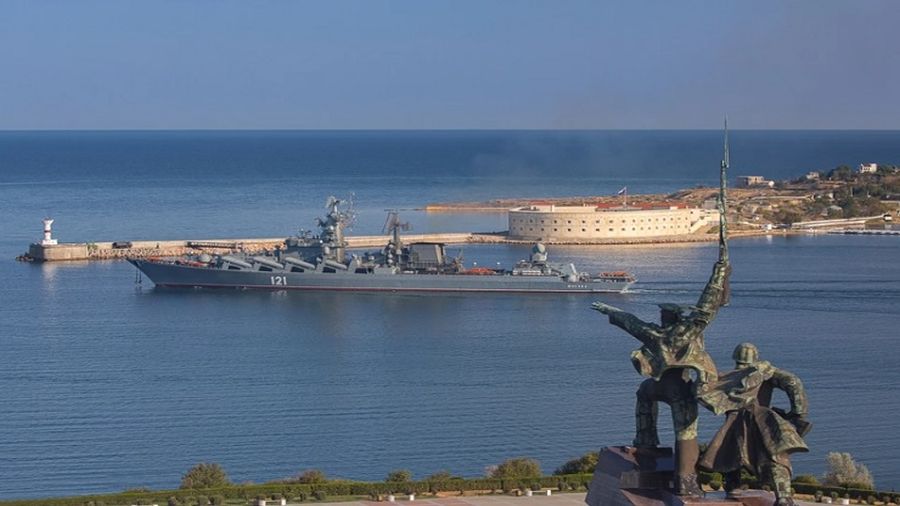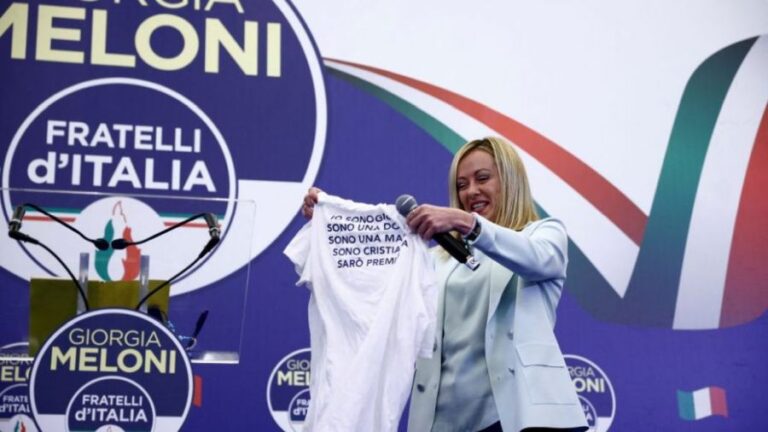Russia-West: Semantic Hallucinations
The end of October was hot. In the early hours of the morning of October 29, Ukrainian aerial drones and underwater drones attacked the Russian naval base in Sevastopol. The attack was repelled, although some ships were damaged, but it had severe political and economic consequences. The Ministry of Defense, followed by the Russian Foreign Ministry, announced the suspension of the so-called grain deal. The deal had been struck on July 22 this year by Russia, Turkey, Ukraine and the UN to alleviate the plight of the poorest countries, mainly in Africa, which were threatened with famine because, as claimed by the West and international officials, millions of tons of Ukraine’s last harvested grain were blocked at Ukrainian ports as a result of military action in Ukraine.
On paper, however, the deal was supposed to be more balanced and fair: millions of tonnes of Russian grain and fertilizers, already blocked because of unilateral and totally illegal Western sanctions against Russia, were to be unblocked as well. And given that Russia is a much larger supplier of grain and fertilizers to world markets, primarily African and Asian ones, it was these sanctions that posed the main threat of famine to the poorest countries.
In practice, however, all the promises of the UN and its Secretary-General Guterres, who invested his own political and moral capital in the deal, turned out to be empty. Russia clearly fulfilled all its obligations: it lifted the naval blockade on ships carrying grain, did not bombard seaports where grain was being loaded, ensured that commercial ships were escorted by its navy, and allowed millions of tonnes of wheat, maize and other grains to leave Odessa and other southern Ukrainian ports. A total of about 9 million tonnes of grain had been exported as of October 29.
The other side, namely the UN and the countries of the “collective West”, have not kept all their promises. The Russian President called it a “brazen deception.” While formally stating that Western sanctions do not apply to the export of food and fertilizers, Western “partners” have not lifted a finger to connect SWIFT to Russian banks, which ensure transactions in agricultural products, above all Rosselkhozbank, nor allow Russian ships to call at European ports, as before. These vessels are not insured and thus have no ability to travel unhindered on international maritime routes at all.
By the end of October, it turned out that out of more than 390 ships carrying grain that had left Odessa and nearby ports, according to the UN, only 7 or 8 ships reached the African coast and those 2% of Ukrainian grain ended up in just a few African countries: Egypt, Djibouti, Ethiopia, Kenya and Somalia. More than 150 ships carrying Ukrainian grain have left for a rich and prosperous Europe. It can be assumed that this grain will later be resold by practical Europeans to the same Africans, but at a different price. In other words, by importing almost all of Ukraine’s grain to itself and preventing Russian food sales, the West has taken African and other countries firmly by the throat, threatening them with the bony hand of famine.
But at the same time, a terrible and thoroughly hypocritical disinformation attack was launched by the Western powers. There have been statements, including from EU foreign policy chief J. Borrell, that Russia’s decision “puts at risks the main export route of much needed grain and fertilizers to address the global food crisis.” The European Union, via social media (sic!), has called on Moscow to reconsider its decision to suspend its participation in the Ukrainian grain export deal. More rude and boorish statements followed from Kiev, but they have long caused nothing but a sarcastic smile among serious people.
US President J. Biden was less diplomatic and, without blinking an eye, called the deal termination “outrageous”, blaming it on Russia without much thought. His Secretary of State, A. Blinken, in a calmer tone, but without referring to the reasons for what happened, regretted the suspension of the agreement and called on the Russian government to renew its participation in the initiative and to act in full compliance with the agreement. However, he completely ignored the terrorist attack on Sevastopol and did not condemn it in any way. A. Guterres did the same. And it should be kept in mind that the naval base of the Black Sea Fleet in Sevastopol is legally Russian territory under all international agreements signed before 2012, and thus recognized by the US as well!
Ukraine’s actions and reactions in general could be talked about at great length. These include the unwarranted and unsubstantiated recent statements by Ukrainian Minister D. Kuleba to a Tanzanian newspaper that more than half of Ukraine’s grain had allegedly gone to Africans. And about the use of Odessa as a route for delivering explosives for the purpose of blowing up the Crimean bridge on October 8 and preparing and carrying out terrorist attacks on the ships of the Black Sea Fleet, which were engaged in guarding their own grain. And much more, not just with the connivance but with the direct complicity of the Anglo-Saxons. The British, according to the Russian Ministry of Defense, were training personnel in Ochakov for drone attacks against Sevastopol, while a US Global Hawk strategic drone, which took off from Sicily, was coordinating the attack from just a hundred kilometers off the Crimean coast. It is also clear that the sale of Ukrainian grain allowed Kiev to continue financing its own policy-induced war, which will do no good to Ukraine.
It is already clear that it is not only counterproductive, but also impossible for Russia to continue fulfilling the terms of the grain deal on a unilateral basis in the current circumstances. If Russian ships are being damaged by Ukrainian drones at the base of the Black Sea Fleet itself, how can they provide escort for vessels carrying Ukrainian grain at sea? And politically it would be pure madness, playing into the hands of the enemy.
The clamor raised in the West is once again destined to conceal the real reasons behind the breakdown of the “grain deal”, which was supposed to expire on November 19 anyway (it was originally concluded on July 22 for a period of 120 days). And they are simple: non-compliance by the UN (and in fact Western countries, for which the UN Secretary-General vouched) with the terms of the three-year memorandum that provided for the involvement of this universal organization in the removal of anti-Russian sanctions and restrictions preventing the exports of agricultural fertilizers and grain from Russia. The anti-Russian sanctions have still not been lifted, despite vociferous claims by European officials that they do not apply to grain and fertilizers. In other words, the deal was implemented only to the extent useful to Kiev and its Western partners, but not Russia and the poorest countries in Africa.
The second and quite obvious reason is the attack on the harbor of the Black Sea Fleet, which makes it impossible in the short term for its vessels to safely escort ships carrying grain from Ukrainian ports.
What is the way out of this situation? Let’s consider the options available.
The first and most obvious is the rejection of the grain deal, which works “one way only”. It profits Ukraine, allows it to prolong the war and, quite possibly, smuggle munitions on supposedly civilian ships, and provides funds for the purchase of Western arms. As Permanent Representative of the Russian Federation to the UN, V. Nebenzia, said on October 31, “Russia cannot allow vessels to pass through the Black Sea unhindered without inspection.” Furthermore, at a meeting of the organization’s Security Council, Vasily Nebenzia pointed out that more than 70 vessels had already been found in violation of the rules of the Black Sea grain deal during its operation, including attempts to smuggle in contraband.
The West is now actively replenishing its grain reserves, which gives it yet another lever of political and economic pressure on the poorest countries. Russia, through its Minister of Agriculture D. Patrushev, has declared that it is ready to supply 500,000 tons of grain free of charge to the poorer countries, and in the future to completely replace the supplies from Ukraine, which have already been half as much as from Russia. It should be noted that 25 countries in Africa depend on Russian grain supplies, consuming a third of their food imports. In addition, it must be borne in mind that Ukraine has already exported almost all of its grain, this year’s harvest being almost half of last year’s and the provocation of the Ukrainians and British against the Black Sea Fleet surely assumed that Russia would not extend the grain deal. As for Russia itself, it has a record harvest of 150 million tonnes of grain this year, of which 50 million is ready to be exported, and this could be a stabilizing fund to prevent famine in the world, of which we are falsely accused by its true instigators of organizing.
There are other options as well. In the face of the rejection of the grain deal, Russia could also offer its fertilizers to poor countries, particularly in Africa. In fact, it has already done so: President Putin, speaking at the SCO summit, said that Russia is ready to hand over, free of charge, more than 300,000 tonnes of fertilizers stranded in European ports. And D. Konyaev, Director General of Uralchem, the largest Russian fertilizer company, made a separate statement that his company is ready to start supplying free to African countries and could start with 25,000 tons of fertilizers to Togo.
In fact, Europe is also inclined to believe that it is impossible to implement the grain deal. France’s Minister of Agriculture said on October 31 that the government is working with other EU countries to allow grain exports from Ukraine by land. Realism takes over.
The second option is more complicated: resume the grain deal. But how can this be done practically? First, Russia must find ships to replace the damaged ones to escort the vessels. But is there any guarantee that they will not be attacked again? It is clear that with a regime in Kiev that is hostile to Russia, supported by the British and part of the US elites, and with military action continuing, no one will provide such guarantees.
In addition, it is necessary to ensure, as Nebenzia said, that vessels are inspected in order to prevent new shipments of weapons to Kiev, which would lead to further bloodshed.
Second, as a precondition for the resumption of the Istanbul arrangements, the issue of guarantees to lift sanctions on Russian banks handling grain shipments, insurance for vessels carrying these goods and the possibility of their entry into European ports must be resolved before they can be re-launched. Only when these conditions are met will the deal become equitable and feasible.
But there is reason to believe that neither Ukraine, nor the West, wants this. The bulk of Ukraine’s grain, as noted above, has already been exported and the main political objective of the West today is to blame Russia for the breakdown of agreements that were originally not binding on the West or even the UN, and were mainly aimed at solving their problems…
From this analysis, each reader can draw his or her own conclusions. But it is clear that Russia will rely on its own strength in the future and the poorest countries are advised to do the same and strengthen cooperation with Moscow, if they do not want to fall victim to further manipulation and brazen deception by the collective West.








The gratest “Verbal Hallucination” of all may be talking about the nations surrounding the sunken Atlantis as “The West”: As long as the Earth is round, there will always be some place further to the West than those nation states currently termed “The West” by all to many who have never contemplated the meaning of the form of a globus when viewing one.